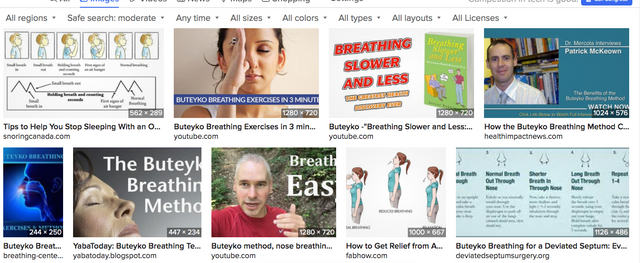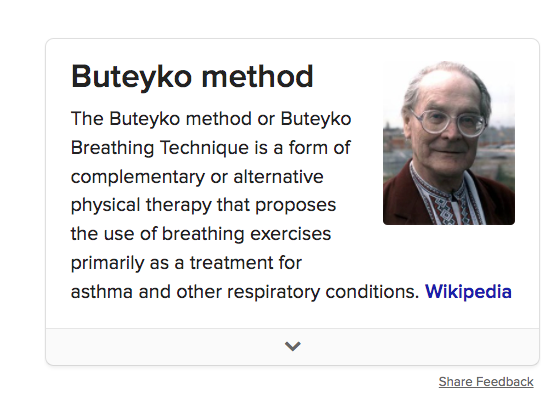
You know the deep breath? Is it really always helping you?
If you breathe too hard you get rid of too much
co2 then the bond between oxygen and
hemoglobin strengthens. This is called the
oxygen dissociation curve.
Yet the other
aspect. . . light breathing through the
nose , in which you harness a higher concentration
of nasal nitric oxide and nasal nitric
oxide which enhances oxygen uptake in the
blood.
When you breathe through the nose you
activate the diaphragm. Activating the
diaphragm and breathing through the nose
will help activate the parasympathetic
nervous system.
The slower and lighter
you breathe the more you bring your body
from a state of stress into relaxation; **therefore,
you need to do the opposite to the deep
breath.
You might ask HOW?
So when stressed, instead of breathing Faster, you need to slow down your breathing.
Instead of sighing you need to have regular breathing.
Instead of breathing through the mouth because you feel or are worried you are not getting enough air, you must break the habit of mouth breathing.
You see, it is not that you are not getting enough oxygen and need more, you are getting the wrong concentration.
You need to go for soft breathing rather than harsh breathing.
Place one hand on chest and one hand just above navel.
Feel the slightly colder air coming into your nose, then the slightly warmer air leaving your nose.
Can you influence your blood circulation through your breath? YES!
Pay attention to the airflow as it comes into your nose and then as it leaves your nose.
Start slowing down the speed of the air as it enters and leaves your nostrils.
Don't hold it or freeze it, just gently soften the breath.
Slow it down to the point to where you feel you are not getting enough air.
Slow it down to the point where you feel you would like to take in a bigger breath.
It shouldn't feel stressful.
It should feel the same as if you're going for a light walk.
As you slow down your breathing, Carbon dioxide gently accumulates in the blood.
Think of harnessing nitric oxide in the nasal cavity.
The lighter you breath through your nose, the higher the concentration of nitric oxide that you bring into your lungs.
To breath so lightly, so quiet, so calm and so soft.'
If your attention wanders off, bring your attention back onto your breath.
Breath so softly and so light. You're only doing this correctly if you feel that you are not getting enough air.
Continue slowing down you're breath until you feel a deprivation of air.
Check which nostril is more abrupt. Left or right?
Block your blocked nostril and breath through your free nostril.
But start softening the breath as it comes through your free nostril so now you are lowering the concentration of air to one nostril.
Can you breath so quietly that almost the fine hairs of the nostril do not move.
You're tuning into feeling the air flow as it comes into the noise, and the air flow as it leaves the nose.
The perfect person breaths as if they do not breath?
You breath so lightly as to harness nasal nitric oxide, to carry it into the lungs, which will help open up the airways, sterilize the air and fuel ventilation profusion.
It's a very good exercise to follow the breathing.
Take your attention off of the mind and onto the breath.
If your focus leaves, draw it back to the breath.
So calm, so light, in and out.
Gently soften it, calm it and quiet it.
Gently slow it down and soften it.
This activates the sympathetic nervous system.
Generally there is more saliva in the mouth, which is good for oral health and the immune system.
Note that when you are stressed your mouth goes dry.
You breath faster and heavier.
In deep mediation your breathing goes down to almost nothing.
You find in deep meditation, your metabolism drops, your breathing reduces.
Everything gets softer.
Stressed people get sick.
Relaxation and reduced breathing will help to make them better.
When you focus on the breath and you actively soften the breath, you activate the parasympathetic nervous system.
When you generate more saliva in the mouth, that generally signifies activation of PNS.
You can bring your body from being switched on to being switched on within 3-4 min. by slowing down the breath.
It's the complete opposite of the deep breath that's usually instructed.
It's absolutely vital to breath through the nose to help people if they are in a state of stress or anxiety.
Mouth breathing is only going to contribute to stress and anxiety.
Unblock Nose in Five Minutes - Buteyko Breathing Method
How to unblock the nose instantly Buteyko Method

A Powerful Technique for Clearing Energy Blockages
#Qigong strengthening lungs and clearing nose.
Master Chunyi Lin |"Your Whole System Will Reboot in 5 Seconds" - The Qigong Technique
All the energy channels start or end in the hands or in the feet.
When you move your hands or feet you generate more energy within.
Why do it slow. . .if you do it fast like running people still get sick because there is no healing energy. With Qigong there is healing energy by bringing focus back to your body, rather than your mind going out.
When your mind and your subconscious mind work together it helps you to reset your energy system.
Find out how to balance your body's magnetic field in 10 min. in alignment with the magnetic field in the ground.
This equals alignment with earth and nature.
Find out a simple 10 min. movement that will improve your limb system, immune system, nerve system and digestive system.
Find out how to cleanse the channels in your body like blockages in the lungs and reproductive organs.
Find a movement that helps open up channels in the heart and a movement that helps to heal cancer in 5, 10 min. if you have time and you have cancer or blockages try it for up to 30 min.
Master Chunyi Lin | "All Your Incurable Diseases Will Disappear"-The Qigong Technique
Downvoting a post can decrease pending rewards and make it less visible. Common reasons:
Submit